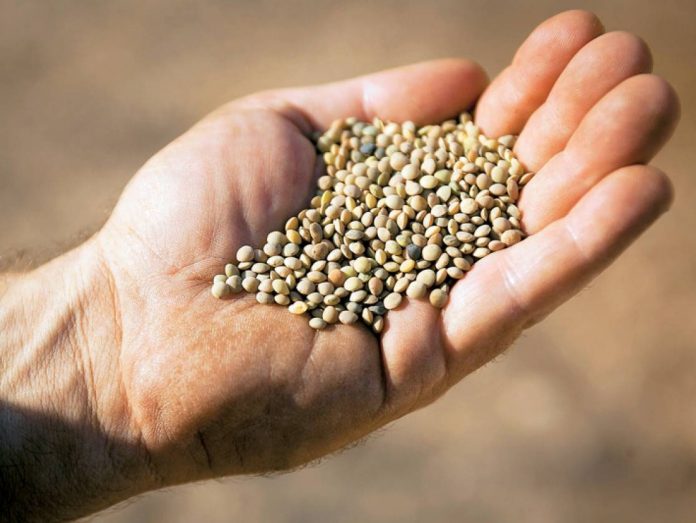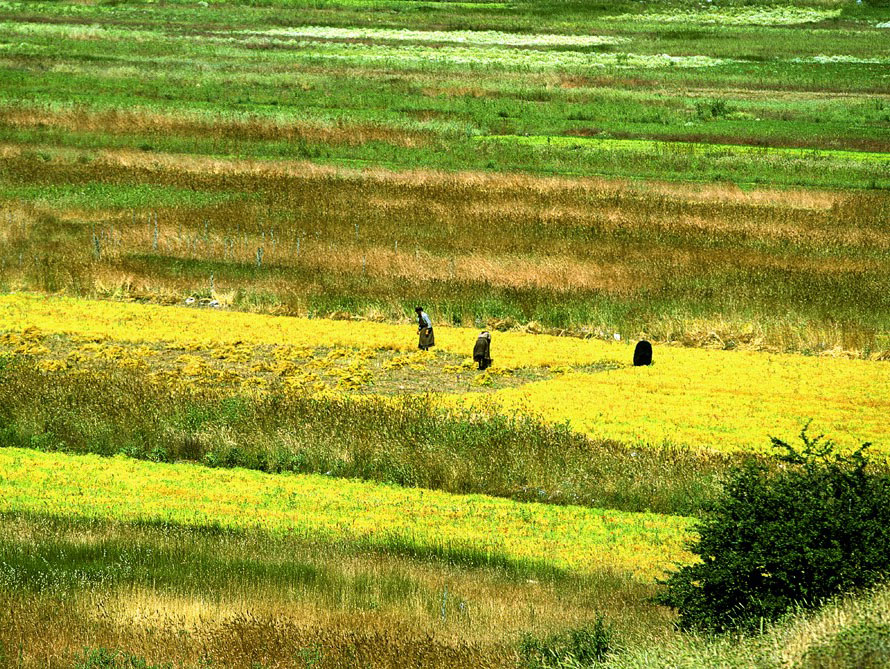An application for the registration of the name “Faki Englouvis” a.k.a. Englouvi lentils as an EU Protected Designation of Origin (PDO) product was submitted last month by the Group of Lentil Producers of Englouvi Lefkada (an island in the Ionian Sea), in order to ensure the certification of a unique Greek product, grown on the Englouvi plateau, at an altitude of over 750 meters. The process is currently in the stage of submitting possible objections until October 5, and then the request will be forwarded to the European Union for the next phase. However, this is a process that may prove to be very time consuming, according to producer Mr Giannis Steriotis. In fact, he points out that it is very difficult to obtain a PDO certification for such products and in Europe only the French Le Puy lentils have been registered as PDO.
The benefits of a PDO certification
The most important benefit of a PDO registration would be to deal with the serious problem of fraud. According to Mr. Steriotis, the annual production of authentic Englouvi Lentils is usually between 80 and 100 tons, but each year are sold about 400 tons of lentils under the Englouvi name.
If the product is registered as PDO, the old seed will be preserved, while, at the same time, the international promotion of the product will be facilitated while obtaining better better prices.
2020 harvest and increased demand
This year’s harvest amounted to approximately 100 tons and is characterized as moderate to good, since the bad weather conditions in June negatively affected production. Regarding COVID-19, it had a positive effect on Englouvi lentils since the demand was high as consumers are currently drawn to products of better quality.
At the same time, there is a wider trend of increased legume consumption, which during the previous decades was constantly decreasing. And although Englouvi lentils are much more expensive compared to other kinds of lentils, with producer prices ranging between 12 and 15 euros per kilo, it does not seem to affect demand as it is still a much cheaper product compared to foods like meat or fish.
Finally, the fact that they are highly nutritious paired with the trend of plant-based diet has strengthened the potential of Englouvi lentils.
About Englouvi lentils
In a mountainous village of Lefkada, a delicious kind of lentils has been cultivated for centuries. The Englouvi plateau –listed in the FAO (Food and Agriculture Organisation of the United Nations) as one of the five protected areas in Greece for its unique, natural and cultural beauty– where the lentils are cultivated, is situated at an altitude of 800-950m. Nowadays, the cultivation continues, with the inherited, old seeds, in a traditional way, by hand, that has remained practically unchanged throughout the years, without the use of any kind of chemical fertilisers or pesticides. It is, in fact, a 100% natural, organic superior product from the land of Englouvi. The annual production of Englouvi lentils is small and depends exclusively on the climatic conditions of each year. Englouvi lentils are perhaps the best lentils in Greece, with unique organoleptic characteristics: they are small, uneven, easy to boil and, when cooked, they smell wonderful.
READ MORE: Greek legumes


















 The Englouvi plateau is located in the island of Lefkada at an altitude of over 750 meters.
The Englouvi plateau is located in the island of Lefkada at an altitude of over 750 meters.  Lentils in Englouvi are still harvested and selected the traditional way.
Lentils in Englouvi are still harvested and selected the traditional way. 
